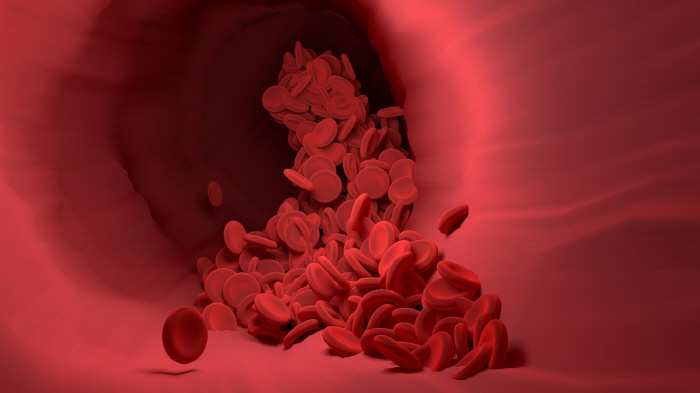Double the mortality rate of general cerebral infarction, cerebral infarction, and improve survival rate when taking beta-blockers
Apr 01, 2025
|
The study was conducted by linking data from the National Health Insurance Corporation with the multi-center stroke cohort (CRCS-K-NIH) involving 20 hospitals nationwide, and is a large-scale analysis study that followed 5,000 patients enrolled from 2011 to 2018 for up to 10 years.
Cerebral infarction is a disease in which blood vessels that supply oxygen and blood flow to the brain are suddenly blocked and brain cells die. If symptoms appear, you should visit a hospital immediately to receive treatment to reopen blood vessels through thrombolysis or stent implantation. As the time is delayed, it can leave aftereffects such as hemiplegia, speech disorders, and swallowing disorders, and in severe cases, it can lead to death, so caution is needed.
Long-term prognostic management is as important as treatment at the time of the outbreak, especially heart rate, one of the vital signs measured when a patient arrives at the hospital, is an important indicator of prognosis.
In general, an adult's heart rate is 60 to 100 times per minute at rest, but some patients with cerebral infarction show a high heart rate with a fast heart rate of more than 100 times per minute at the beginning of the outbreak. The abnormally fast heartbeat suggests the presence of autonomic nervous system imbalances, systemic inflammatory reactions, or hidden heart diseases (e.g., atrial fibrillation, coronary artery disease) caused by brain damage, and patients with cerebral infarction have a mortality rate of up to twice as high as those with normal heart rates.
The problem is that there is no clear treatment strategy for patients with cerebral infarction, and the possibility of using a 'beta blocker' used to treat high blood pressure and heart failure as a mechanism to lower heart rate has been suggested, but it is not standard due to the lack of long-term research on stroke patients.
Accordingly, the research team conducted a study on patients with cerebral infarction with high heart rates to analyze how long-term survival rates improve when taking beta-blockers for a long time. The research team classified 5,000 patients whose maximum heart rate was more than 100 times per minute between 3 and 7 days after the onset of cerebral infarction, classified them into 'persistent group', 'interrupted group', and 'non-administrative group' and analyzed the long-term prognosis for up to 10 years depending on whether or not beta-blockers were taken.
As a result, patients with severe cerebral infarction who continued to take beta-blockers had a significantly lower mortality rate than those in the non-dose group. In particular, the mortality rate of the taking group was about 18% lower at 1 year after the onset and the difference widened to 31% at 30 months, and this mortality reduction effect was noticeable in patients with ▲ under 75 years of age ▲ atrial fibrillation and coronary artery disease ▲ high average heart rate.
In addition, patients who took beta-blockers and stopped within 1 month of the onset had a 17% higher risk of death than those who did not take them at all. This suggests that if you have been taking beta-blockers since before the outbreak, you should not stop taking them arbitrarily even if you have cerebral infarction.
While the use of beta-blockers for cerebral infarction patients is currently limited in domestic and international medical standard guidelines, the study is meaningful in that it presents a new standard treatment, proving that it can help improve survival rates for high-risk patients with high heart rates.
Professor Bae Hee-jun said, "This study is significant in that it presents a treatment strategy that can increase the survival rate for a clearly high-risk group called painstaking applause among patients with cerebral infarction. It is necessary to further verify the effectiveness of beta-blockers after stroke through a randomized controlled trial (RCT) in the future." he said.
Meanwhile, the study was conducted with the support of the Department of Health and Welfare's Patient-Centered Medical Technology Optimization Research Project (PACEN), and the results were published in the latest issue of the world-renowned American Heart Association.
|
This article was translated by Naver AI translator.















